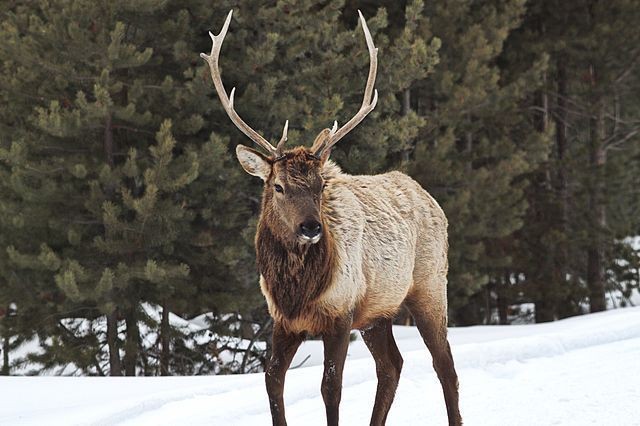FORT HALL — The Shoshone-Bannock Tribes have been coordinating with State agencies and Tribal departments during the past several weeks to ensure the safety of wintering elk and for travelers driving along sections of Interstate 15 and 86; and rural roads on the Fort Hall Indian Reservation.
Elk migrate onto their Reservation winter ranges for forage and refuge from cold temperatures and deep snow. Due to the recent extreme winter weather, elk herds have been pushed to lower elevations along the interstates and nearby Reservation roadways, posing a potential hazard to motorists.
As a precautionary measure, the Tribes have requested Idaho Department of Transportation utilize several LED message boards, to warn motorists about the possibility of wildlife on the Interstates by repeating a “Warning, Elk on Roadway” message to passing motorists near Fort Hall. According to Leander Watson, Tribal Big Game Program Biologist, “the Tribes are working to prevent wildlife/vehicle interactions on Interstates and rural Reservation roads. A supplemental feeding program has been initiated along with road closures and additional signage cautioning motorists of wildlife presence on rural Reservation roads.” Watson adds, “We (the Tribes) take on these proactive measures to ensure that we have a viable and sustainable population of elk and other wildlife for future generations.”
The Tribes are aware that these elk herds provide great viewing opportunities but during these critical winter months, these animals are at their most vulnerable. The Tribes are asking the public refrain from any travel through their winter grounds to avoid triggering a mass migration across a public roadway. The Tribes ask motorist to please slow down and be cautious because the roads are slick and there may be wildlife species present on or along the Interstates and rural reservation roads.
